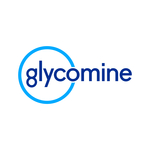
Glycomine Presents at ASHG 2023 Data from Ongoing Natural History Study with Insight into Genetic Mutations and Biomarkers for PMM2-CDG
- This study in 139 patients with PMM2-CDG represents the largest prospective natural history dataset with more than 300 patient-years of data collected to date
- Data from this study lay the groundwork for future investigations into potential genotype/phenotype correlations
- The data presented at ASHG 2023 explores the impact of key genetic mutations on multiple organ systems in PMM2-CDG
SAN CARLOS, Calif.--(BUSINESS WIRE)--#CDG--Glycomine, Inc., a biotechnology company focused on developing new therapies for orphan diseases, announced the presentation of summary findings from its ongoing natural history study at the American Society for Human Genetics (ASHG) 2023 Annual Meeting taking place in Washington, DC. The findings included genotype characterization, combined with the progression of key biomarkers, over two to four years.


“We are delighted to be able to communicate these findings to support the community and further our understanding of PMM2-CDG for patients, their caregivers, and researchers in the field,” said Rose Marino, M.D., Chief Medical Officer of Glycomine. “The data from this study, combining genetic, clinical, and biochemical parameters, will further add to the design of our future interventional studies with our lead clinical candidate, GLM101, currently in Phase 2 clinical studies.”
“Natural history studies in PMM2-CDG are critical to build our understanding of this, and any rare, disease,” added Eva Morava, M.D., Ph.D., who is leading the Frontiers of CDG Consortium and is the Principal Investigator of the study. “The study represents a significant, global collaboration over many years and will continue to inform further investigations to support potential new treatment options for patients.”
The natural history study has enrolled 139 PMM2-CDG patients at 11 sites around the world, with three sites in the US and eight in Europe (ClinicalTrials.gov Identifier: NCT03173300). Every patient currently enrolled has completed more than two years in the study. The effort has resulted in the largest single dataset in patients with PMM2-CDG from a prospective natural history study to date.
The title of the ASHG 2023 presentation (Board No. PB1696) is “Ongoing Natural History Study in Phosphomannomutase 2 Congenital Disorder of Glycosylation (PMM2-CDG): Clinical and Basic Investigations.”
About GLM101
GLM101 is a mannose-1-phosphate replacement therapy in development to treat phosphomannomutase 2-congenital disorder of glycosylation (PMM2-CDG), previously known as CDG Type Ia. GLM101 has received Orphan Drug Designation in the U.S. and Europe and Rare Pediatric Disease Designation in the U.S. PMM2-CDG is caused by genetic mutations that lead to a deficiency of the enzyme phosphomannomutase 2 (encoded by the PMM2 gene). GLM101 is designed to deliver mannose-1-phosphate directly into cells and thereby bypass the PMM2 enzyme deficiency and address disease-causing PMM2 mutations to restore pathway function.
About Glycomine, Inc.
Glycomine is a clinical-stage biotechnology company developing novel drugs for serious rare disorders of metabolism and protein misfolding for which no other therapeutic options exist. The company's approach is to use replacement therapies – substrates, enzymes, or proteins – and to target those molecules to clinically relevant cellular compartments. The company is based in San Carlos, California and supported by leading international life sciences investors. For more information, visit www.glycomine.com.
Contacts
Corporate Contact: Peter McWilliams, Ph.D., info@glycomine.com
Media Contact: Jessica Yingling, Ph.D., Little Dog Communications Inc., jessica@litldog.com, +1.858.344.8091
Editor Details
-
Company:
- Businesswire
